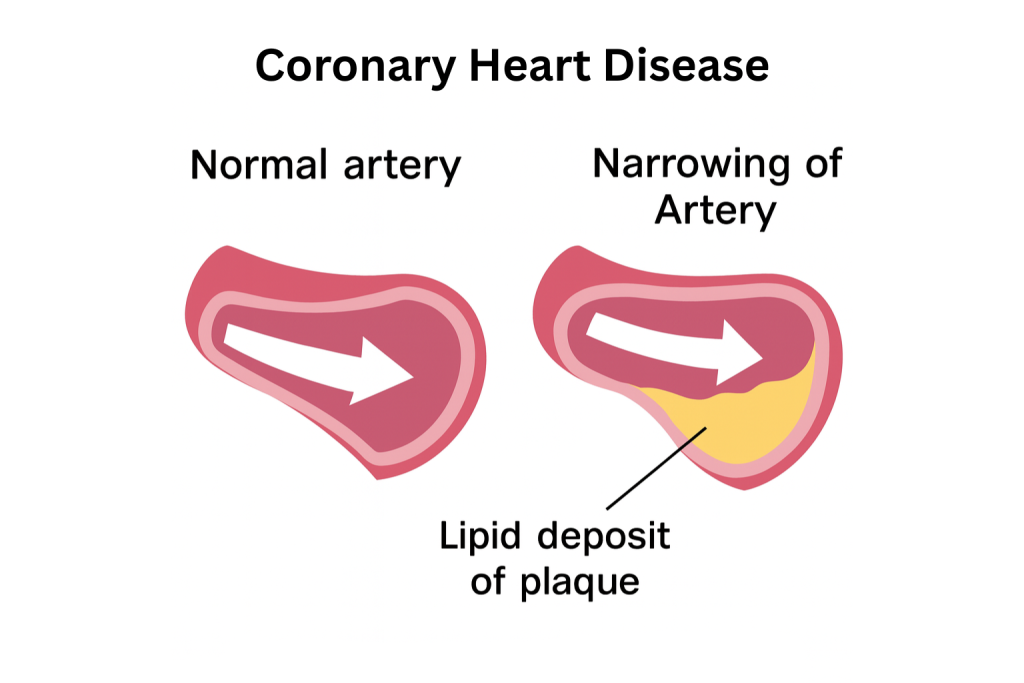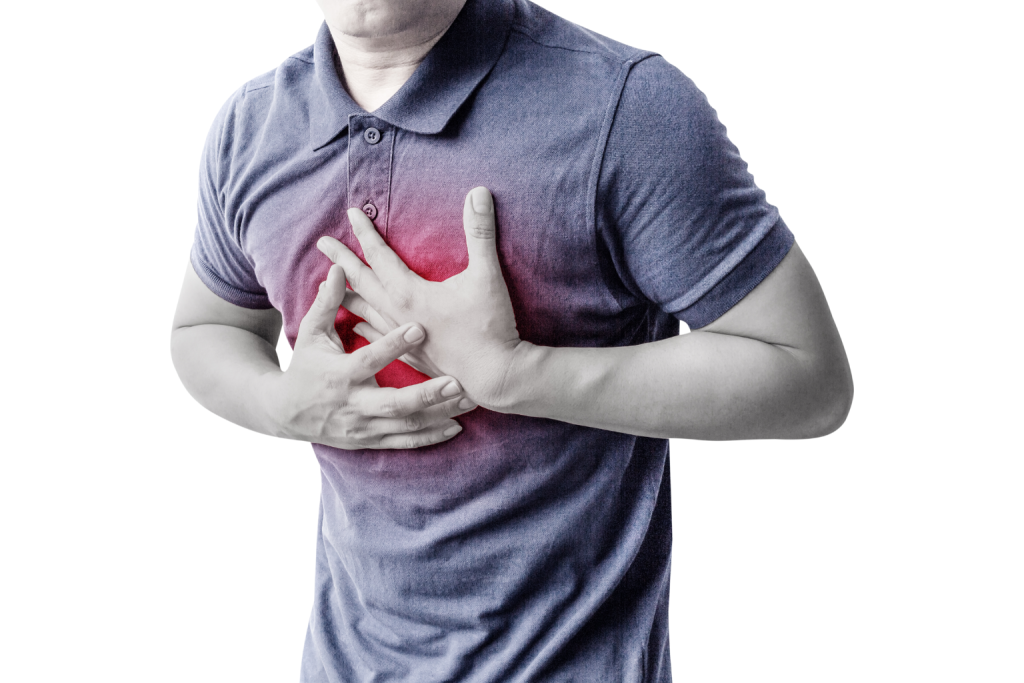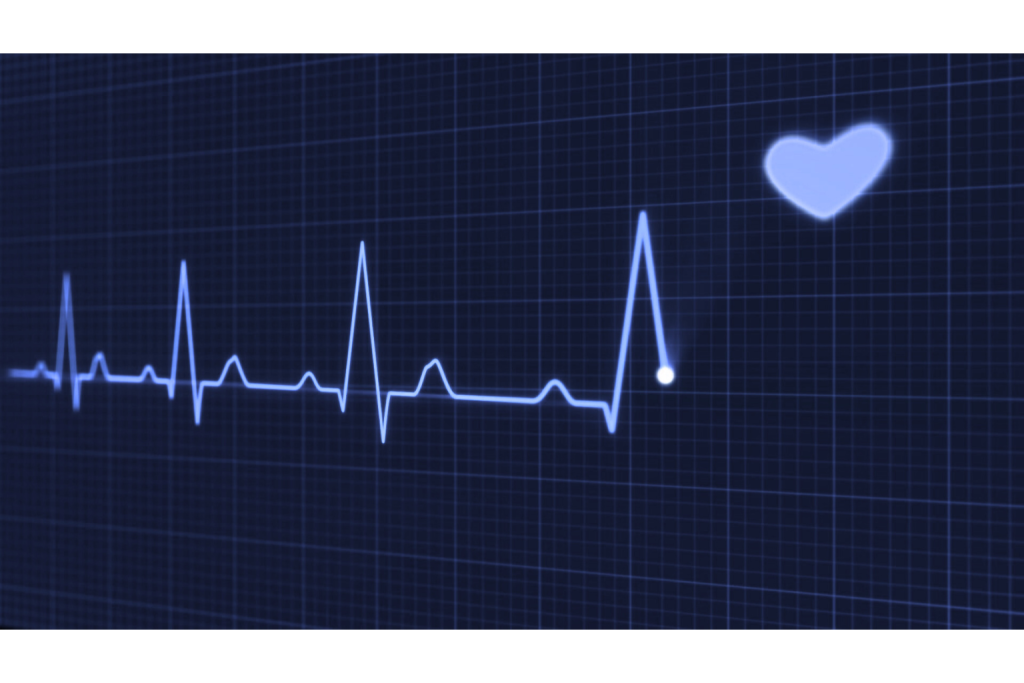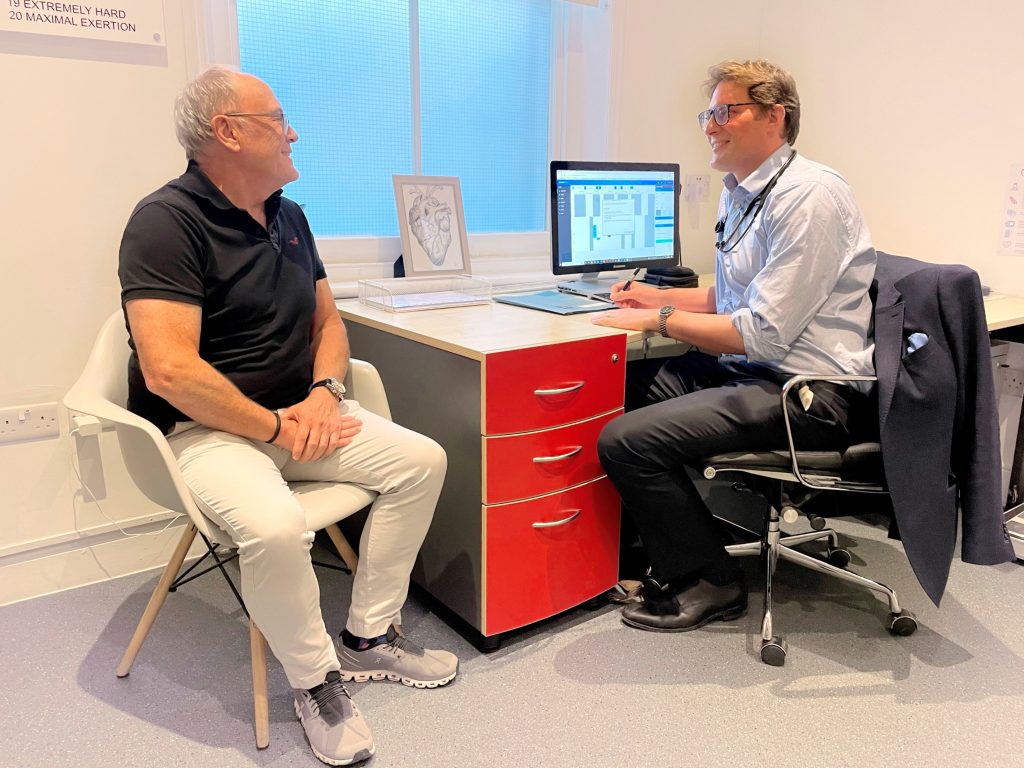Heart problems are a leading cause of illness and death in the UK, but spotting them early can make a big difference.
Many people think heart disease only affects older men, but it can affect women, younger adults, and even people who seem healthy. Knowing the warning signs gives you a chance to act sooner and get checked before things become more serious. This guide looks at the common early signs of heart problems, why they happen, and what steps people often take afterwards.
The term “heart problems” covers a wide range of conditions that affect the heart’s structure or function. The most common is coronary heart disease, where fatty deposits build up in the arteries that supply blood to the heart. Other conditions include arrhythmias (irregular heart rhythms), heart valve problems, and heart failure, when the heart struggles to pump blood properly. While they all vary, many share similar early warning signs.

Chest pain or discomfort is one of the first things people associate with the heart. It might feel like pressure, tightness, heaviness, or burning. Sometimes it comes and goes, and sometimes it happens during exercise or stress. While not every chest pain is linked to the heart, chest discomfort should never be ignored. It can signal blocked arteries or reduced blood flow to the heart muscle.

Another early sign is feeling out of breath more easily than usual. This might happen during exercise, climbing stairs, or even when resting. Shortness of breath occurs because the heart is not pumping blood effectively, meaning less oxygen reaches the body. Some people also experience it when lying flat, which can be linked to early heart failure.

Feeling unusually tired or weak, even after resting, can sometimes point to heart problems. When the heart cannot pump enough blood around the body, muscles and tissues do not get the oxygen they need. People often dismiss this as stress or ageing, but unexplained fatigue is worth paying attention to, especially when it happens alongside other symptoms.
The sensation that your heart is skipping beats, fluttering, or racing is called palpitations. While many cases are harmless, they can sometimes indicate arrhythmias. These irregular rhythms might not always cause noticeable symptoms, but when they do, they may leave you feeling dizzy, light-headed, or faint.

The build-up of fluid in the lower body, called oedema, is another possible sign of heart trouble. It usually happens when the heart struggles to circulate blood properly, causing fluid to leak into surrounding tissues. Shoes feeling tighter or visible swelling at the end of the day can sometimes be linked to early stages of heart failure.
Heart-related pain is not always felt in the chest. Some people notice pain spreading to the arms, neck, jaw, back, or stomach. Women, in particular, may experience heart symptoms in less typical ways, such as jaw pain, nausea, or back pain, rather than strong chest pain.
When the heart cannot maintain a steady rhythm or pump enough blood, blood pressure can suddenly drop. This can leave a person feeling dizzy, light-headed, or even cause fainting. While these symptoms have many possible causes, repeated episodes should be checked by a doctor.

Some early heart problems can feel like indigestion, with nausea or stomach discomfort. Cold sweats or sudden clamminess can also occur during heart trouble, especially in cases of reduced blood flow. These symptoms are easy to mistake for other conditions, which is why they can often be missed.
Not always. Some people develop heart disease without experiencing any clear symptoms until the condition has progressed. Silent heart problems can sometimes be picked up during routine tests, such as blood pressure checks, cholesterol tests, or ECGs. This is why regular health checks are important, especially for people with risk factors like smoking, diabetes, or family history.
Lifestyle plays a big role in heart health. Smoking, heavy drinking, poor diet, lack of exercise, and high stress can all increase the risk. On the other hand, regular exercise, eating balanced meals, and maintaining a healthy weight can lower the chance of developing symptoms. Even so, heart problems can still occur in people who appear healthy, which is why knowing the early signs is so important.

Heart problems are more common as people age, especially after 50. Men are slightly more likely to develop them earlier, although women’s risk increases sharply after menopause. People with high blood pressure, high cholesterol, obesity, or diabetes are also more prone to early symptoms. Family history plays a role too. For example, if a close relative developed heart disease at a younger age, your own risk may be higher.
Doctors use several tests to detect heart issues. These can include:
Electrocardiogram (ECG): measures the heart’s electrical activity.
Echocardiogram: uses ultrasound to look at the heart’s structure.
Blood tests: check for signs of heart damage or high cholesterol.
CT or MRI scans: provide detailed pictures of the heart and arteries.
These tests help confirm whether symptoms are linked to heart disease or another condition.
If you notice any of the symptoms mentioned—especially chest pain, shortness of breath, or fainting—you should seek medical advice. For sudden or severe chest pain, you should call 999 immediately, as this could be a heart attack. For less urgent symptoms, booking an appointment with your GP is the best step or going to visit a private cardiology clinic like Heartsure.

Yes. Treatments are much more effective when started early. This might involve lifestyle changes, medication, or procedures to improve blood flow. In some cases, surgery such as stent placement or bypass surgery may be needed. Early detection often means less invasive treatments and better outcomes.
Heart problems can show themselves in many ways, from chest discomfort and breathlessness to swelling, fatigue, or palpitations. Sometimes they are subtle and easy to dismiss, but knowing the early signs gives you the chance to act quickly. If you are worried about symptoms, it is always better to get checked rather than ignore them. Taking steps such as eating well, exercising, and stopping smoking can also help reduce the risk of heart disease.
Disclaimer: Seonat provides general health information for educational purposes only. This content is not a substitute for professional medical advice, diagnosis, or treatment. Always seek the advice of your GP or another qualified health provider with any questions about a medical condition or before making health decisions.

Simplifying health information for those who need it most
Please note: we are not medical professionals, and the content on this website is for general information only. Always speak to a qualified healthcare provider for medical advice.